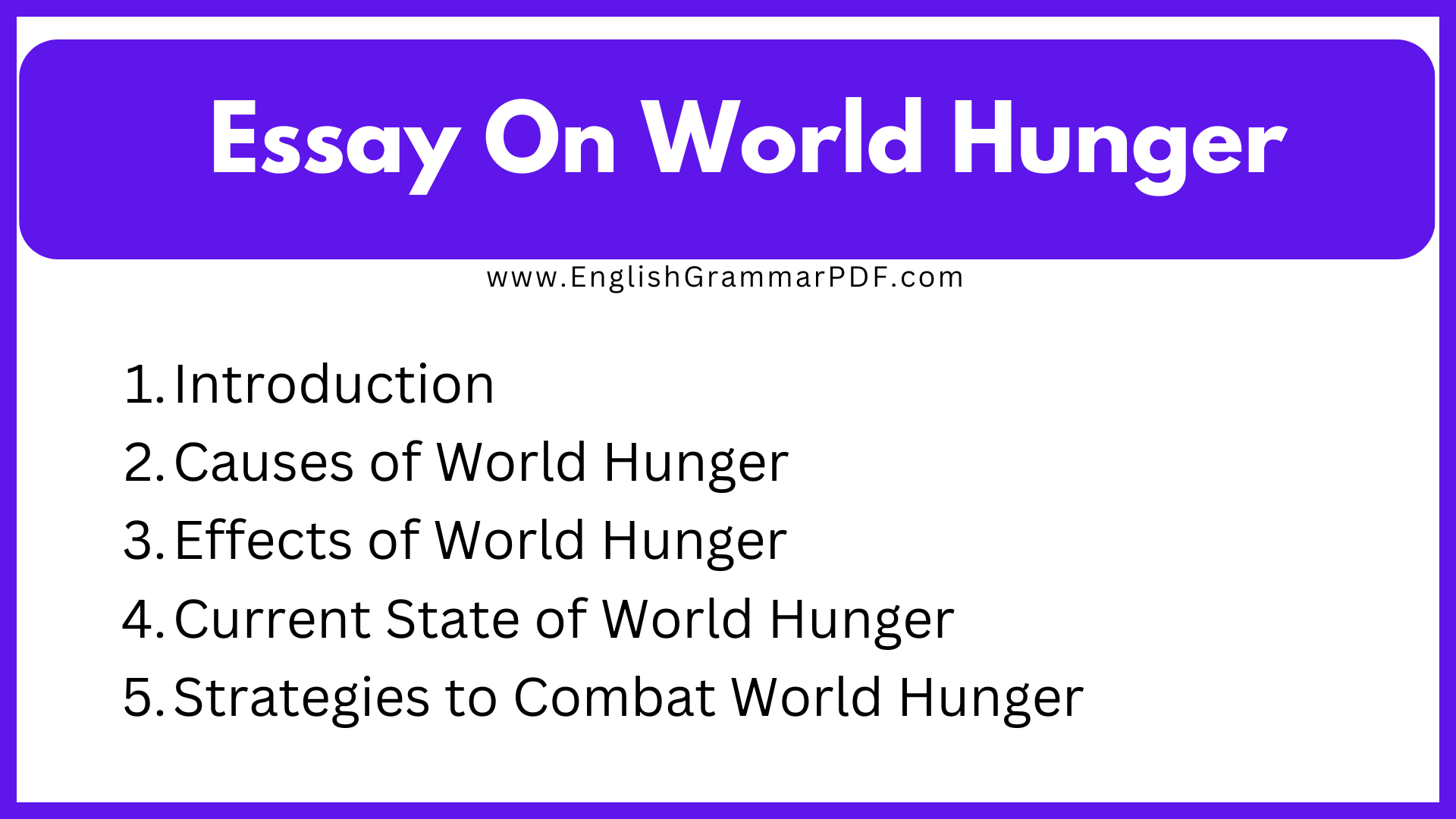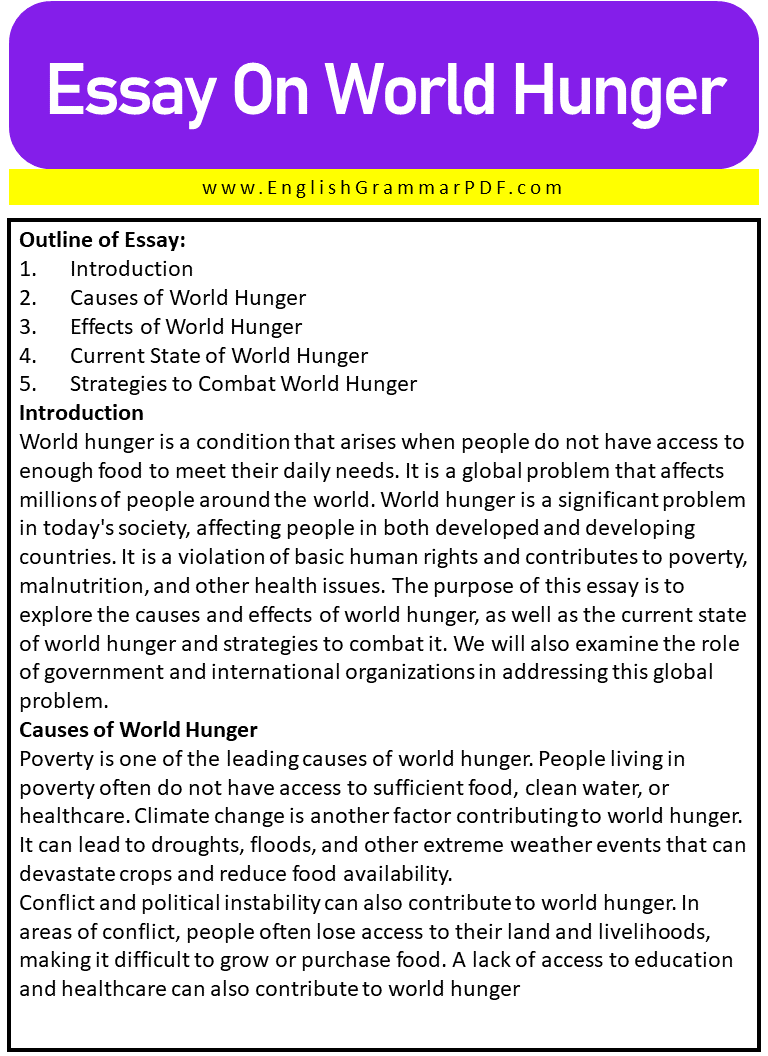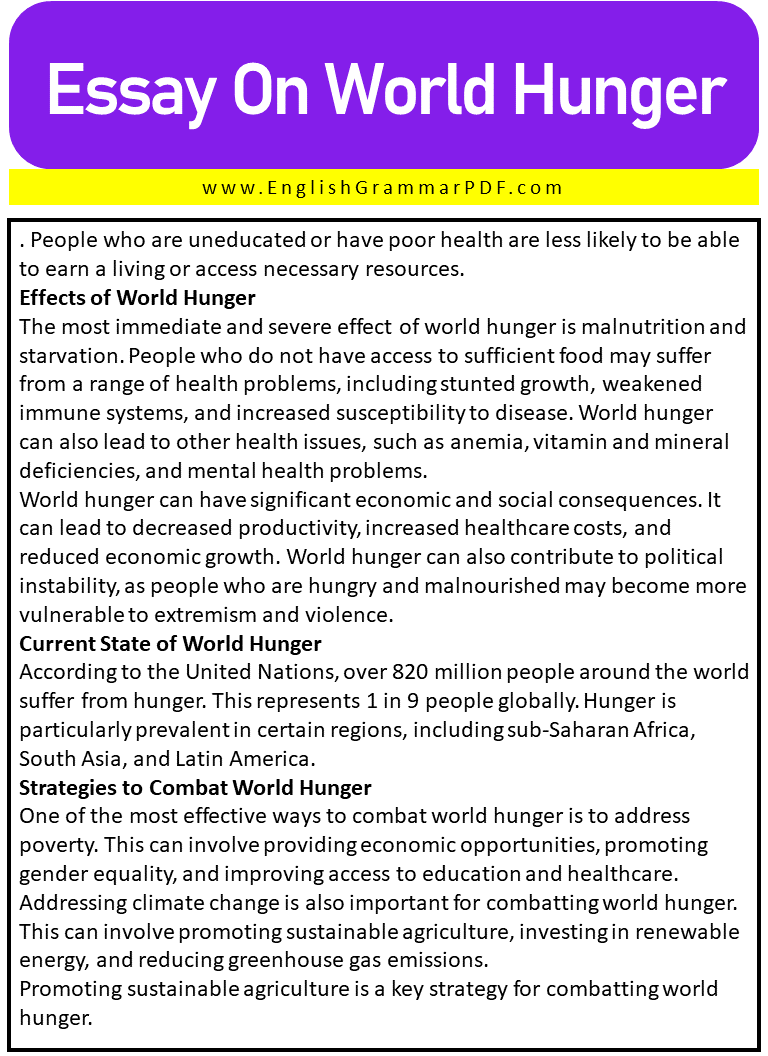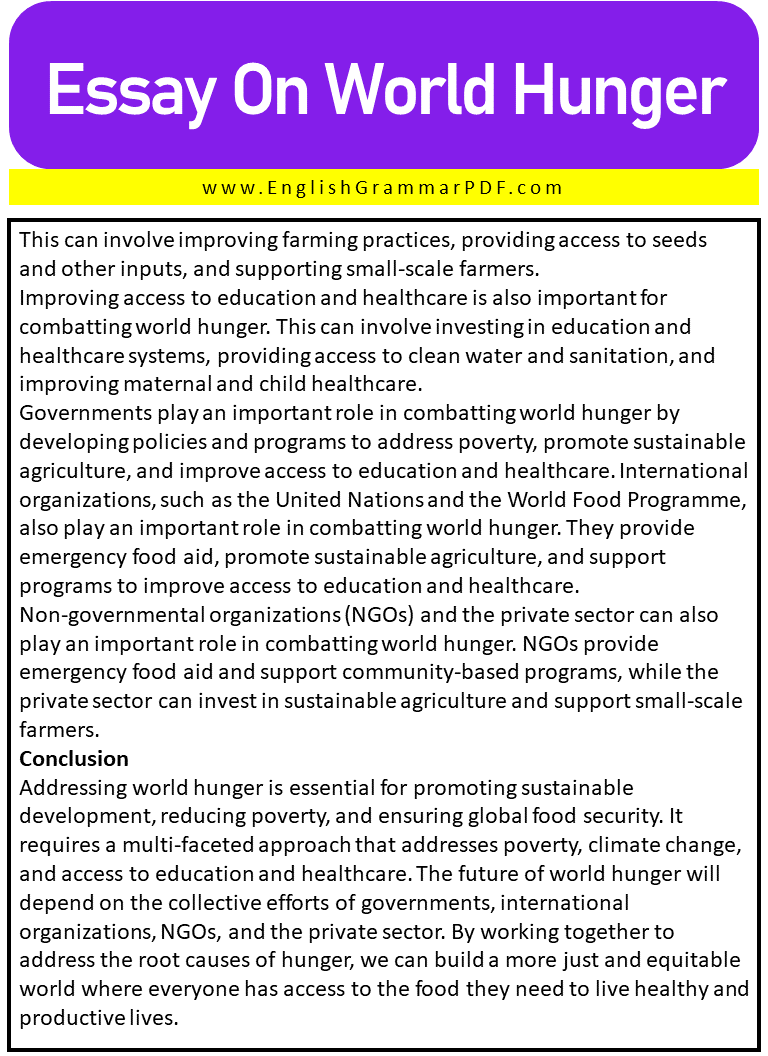Essay On World Hunger
Outline of Essay:
- Introduction
- Causes of World Hunger
- Effects of World Hunger
- Current State of World Hunger
- Strategies to Combat World Hunger
Introduction
World hunger is a condition that arises when people do not have access to enough food to meet their daily needs. It is a global problem that affects millions of people around the world. World hunger is a significant problem in today’s society, affecting people in both developed and developing countries. It is a violation of basic human rights and contributes to poverty, malnutrition, and other health issues. The purpose of this essay is to explore the causes and effects of world hunger, as well as the current state of world hunger and strategies to combat it. We will also examine the role of government and international organizations in addressing this global problem.
Causes of World Hunger
Poverty is one of the leading causes of world hunger. People living in poverty often do not have access to sufficient food, clean water, or healthcare. Climate change is another factor contributing to world hunger. It can lead to droughts, floods, and other extreme weather events that can devastate crops and reduce food availability.
Conflict and political instability can also contribute to world hunger. In areas of conflict, people often lose access to their land and livelihoods, making it difficult to grow or purchase food. A lack of access to education and healthcare can also contribute to world hunger. People who are uneducated or have poor health are less likely to be able to earn a living or access necessary resources.
Effects of World Hunger
The most immediate and severe effect of world hunger is malnutrition and starvation. People who do not have access to sufficient food may suffer from a range of health problems, including stunted growth, weakened immune systems, and increased susceptibility to disease. World hunger can also lead to other health issues, such as anemia, vitamin and mineral deficiencies, and mental health problems.
World hunger can have significant economic and social consequences. It can lead to decreased productivity, increased healthcare costs, and reduced economic growth. World hunger can also contribute to political instability, as people who are hungry and malnourished may become more vulnerable to extremism and violence.
Current State of World Hunger
According to the United Nations, over 820 million people around the world suffer from hunger. This represents 1 in 9 people globally. Hunger is particularly prevalent in certain regions, including sub-Saharan Africa, South Asia, and Latin America.
Strategies to Combat World Hunger
One of the most effective ways to combat world hunger is to address poverty. This can involve providing economic opportunities, promoting gender equality, and improving access to education and healthcare. Addressing climate change is also important for combatting world hunger. This can involve promoting sustainable agriculture, investing in renewable energy, and reducing greenhouse gas emissions.
Promoting sustainable agriculture is a key strategy for combatting world hunger. This can involve improving farming practices, providing access to seeds and other inputs, and supporting small-scale farmers.
Improving access to education and healthcare is also important for combatting world hunger. This can involve investing in education and healthcare systems, providing access to clean water and sanitation, and improving maternal and child healthcare.
Governments play an important role in combatting world hunger by developing policies and programs to address poverty, promote sustainable agriculture, and improve access to education and healthcare. International organizations, such as the United Nations and the World Food Programme, also play an important role in combatting world hunger. They provide emergency food aid, promote sustainable agriculture, and support programs to improve access to education and healthcare.
Non-governmental organizations (NGOs) and the private sector can also play an important role in combatting world hunger. NGOs provide emergency food aid and support community-based programs, while the private sector can invest in sustainable agriculture and support small-scale farmers.
Conclusion
Addressing world hunger is essential for promoting sustainable development, reducing poverty, and ensuring global food security. It requires a multi-faceted approach that addresses poverty, climate change, and access to education and healthcare. The future of world hunger will depend on the collective efforts of governments, international organizations, NGOs, and the private sector. By working together to address the root causes of hunger, we can build a more just and equitable world where everyone has access to the food they need to live healthy and productive lives.
FAQs
Who suffers from world hunger?
Over 820 million people around the world suffer from hunger, with hunger being particularly prevalent in certain regions, including sub-Saharan Africa, South Asia, and Latin America.
How does climate change cause hunger?
Climate change can lead to extreme weather events such as droughts, floods, and storms, which can damage crops and reduce food availability, leading to hunger and malnutrition.
What is the main cause of poverty?
The main cause of poverty is a lack of access to resources such as education, healthcare, and economic opportunities. Other factors, such as conflict, climate change, and inequality, can also contribute to poverty.
Download the Pdf of the Essay On World Hunger
DOWNLOAD PDF




Read More Essays:


